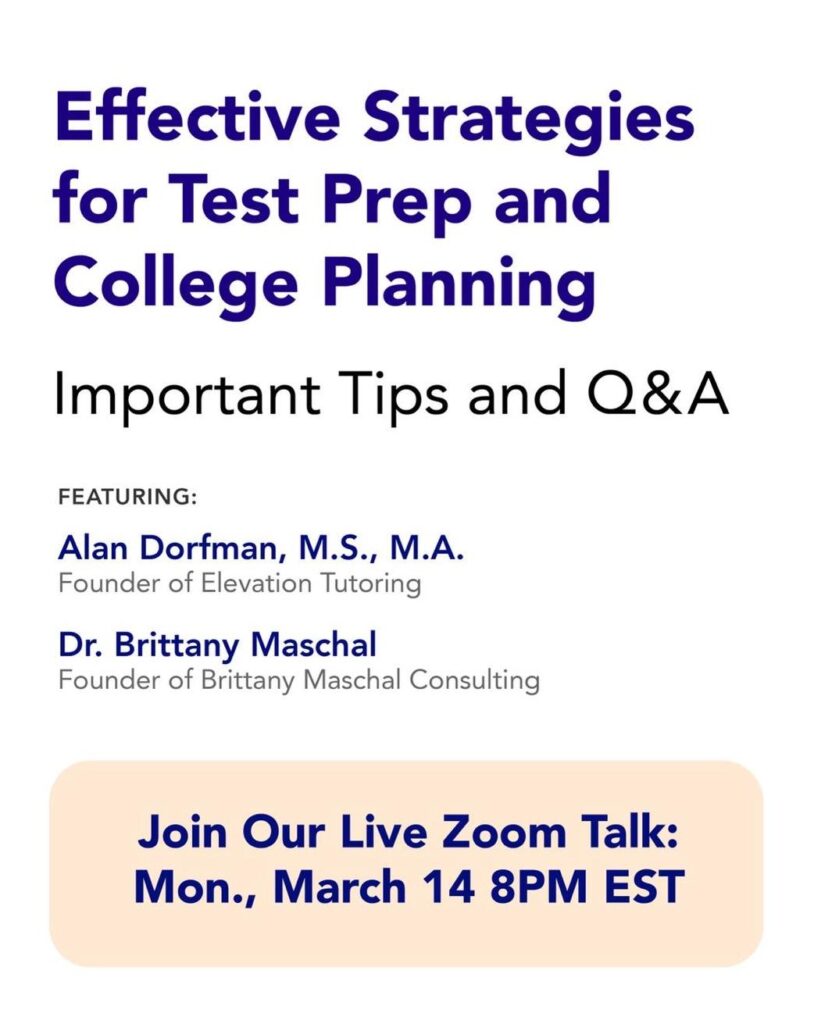I came across an article by a student at Menlo Atherton (Dylan Lanier) that I wanted to share. You can access it here or read it below.
I’m 20+ years out from college (and a low-stress application process), but my days are wrapped up in this world. When I think about college admissions today compared to even a few years ago, the #1 thing that stands out is how much more stressful it is for everyone involved. The number of students (and almost always, they are excellent top students) we see presenting mental health red flags is far too high.
Where you go to college is…simply where you go to college. It’s four years of exploration, developing independence, and figuring it out. I hope both students and parents who are in or approaching this process can keep in mind that it’s a four-year stop on a long journey; it’s not the end game, and it’s not an ultimate goal.
—
It’s that time of year again: No, not Pisces season. College acceptance — and rejection — season.
At M-A, the energy is electric, and not always in the best way. Seniors are on pins-and-needles waiting for letters to come back from the colleges they applied to a few months back. Juniors, on the other hand, are already stressing about their own applications to come next year.
While I recognize the importance of higher education, I think that too many of us compromise our mental health by spending countless hours worrying about college. It’s important to enforce practices in your daily life that help you decompress. Not only will you be a happier and healthier person, but you will perform better in all areas of your life. You can’t crush that AP Lit test if you’re only thinking about college! So, here are some of the ways I find most effective to de-stress:
1. Time Away: Find a relaxing activity you truly enjoy, be it hiking, painting, or reading on the couch. Set a designated time for yourself each day or week to spend solely on that recreation. I recommend choosing a hobby that requires a lot of focus in order to prevent your mind from wandering back to college.
2. Community: Your family and friends are great resources for support and distraction. Go out to dinner, watch a movie, or just talk about everything under the sun other than college. Connecting with others will not only lift your spirits but place your attention on them instead of your own worries.
3. New Goals: The reason college admissions are so stressful is that we view them as the ultimate goal. Therefore, pick new, smaller goals that can help you satiate that need for accomplishment, such as learning an instrument or holding a bake sale for a local charity.
4. Mindfulness: Look, when I first tried meditation, I was just as skeptical about its benefits. But I can confidently say that it has considerably lowered my stress level and allowed me to reflect on my life without the typical emotional responses. I recommend downloading an app like Calm or finding guided mindfulness meditations on YouTube to help you commit to and get the most out of the practice.
Acknowledging your college stress and recognizing the negativity it brings into your life is the most important step. Understand how it’s impacting your daily life and respond accordingly with specific, customized strategies to limit those effects.
However you choose to de-stress, be sure to fully commit to the process. Take it from a fellow student: Nothing is more important than your well-being, and taking concrete steps to improve it will yield exponential benefits. Best of luck in your collegiate endeavors and your journey to de-stress!
*Stay in the know! Subscribe*










